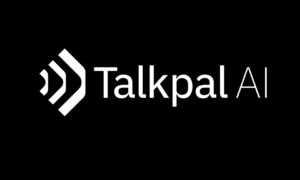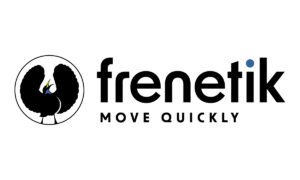The future of higher education in Maryland is undoubtedly shaped by the innovations of EdTech startups. These companies are revolutionizing how learning is delivered, making education more accessible, personalized, and engaging. As Maryland’s universities continue to adopt these technologies, they are positioning themselves at the forefront of modern education. While challenges remain, the potential for EdTech to transform higher education is immense. By embracing these innovations, Maryland’s higher education system can provide students with the tools and resources they need to succeed in an increasingly digital world. As we look to the future, it is clear that EdTech startups will play a central role in shaping the next generation of learning experiences in Maryland.
Introduction:
As we look to the future, it’s evident that EdTech startups will continue to be at the forefront of educational advancements. This article explores how these companies are shaping the future of higher education in Maryland and why they are critical to the evolution of learning.
The Changing Landscape of Higher Education:
The demands placed on higher education institutions are evolving. Maryland’s colleges and universities, like many across the country, are facing new challenges. Students are no longer satisfied with traditional classroom experiences and demand more flexibility, engagement, and personalization in their learning journeys. With advancements in technology, universities must adapt to meet these expectations.
Moreover, the COVID-19 pandemic acted as a catalyst, accelerating the adoption of online and hybrid learning models. While some institutions were prepared for the shift, others struggled to provide effective virtual learning environments. This transition exposed gaps in the higher education system, highlighting the need for innovative solutions that enhance the learning experience.
In this context, EdTech startups have emerged as key players in driving the transformation of higher education. These companies are developing technologies and tools that not only address the current challenges faced by universities but also pave the way for a more flexible, efficient, and inclusive future.
The Role of EdTech Startups in Higher Education:
EdTech startups are playing a pivotal role in revolutionizing how higher education is delivered in Maryland. Their contributions span various aspects of education, from learning management systems to student engagement tools. Below are some of the ways in which these startups are leading the charge in transforming higher education.
Personalized Learning Experiences:
One of the most significant impacts of EdTech startups is the ability to create personalized learning experiences. Traditionally, higher education has followed a one-size-fits-all model, where students are expected to learn at the same pace and in the same way. However, EdTech tools are making it possible for students to receive tailored learning experiences that cater to their individual needs.
Startups like Coursera, Khan Academy, and Knewton are at the forefront of this movement. These platforms use data-driven algorithms to analyze students’ progress and deliver personalized content. This ensures that students receive instruction at their own pace and in a format that works best for them. Personalized learning not only enhances student engagement but also improves retention and academic performance.
In Maryland, universities are increasingly adopting these tools to offer a more customized educational experience. By leveraging EdTech, institutions can better meet the diverse needs of their students, leading to higher satisfaction and improved learning outcomes.
Improving Accessibility and Inclusivity:
Another significant contribution of EdTech startups is their focus on making higher education more accessible and inclusive. Historically, students with disabilities or those from underserved communities have faced barriers to accessing quality education. EdTech startups are working to remove these obstacles by developing tools that make learning more accessible to everyone.
For example, platforms like Read&Write offer assistive technology that helps students with dyslexia, visual impairments, and other learning disabilities. These tools provide features such as text-to-speech, speech-to-text, and screen readers, making it easier for students to engage with course materials.
Additionally, online learning platforms developed by EdTech startups allow students from remote areas or those with limited access to physical campuses to pursue higher education. This has been particularly important in Maryland, where rural communities may not have easy access to universities. Through digital platforms, students can now attend lectures, submit assignments, and participate in discussions from anywhere, making higher education more inclusive.
Enhancing Student Engagement and Collaboration:
Student engagement is a critical factor in the success of higher education. Engaged students are more likely to participate in class, complete assignments, and achieve academic success. However, maintaining engagement in an online or hybrid learning environment can be challenging. EdTech startups are addressing this issue by developing tools that enhance interaction and collaboration between students and instructors.
Platforms like Nearpod, Top Hat, and Piazza are designed to foster active learning and collaboration in both virtual and in-person classrooms. These tools allow students to participate in real-time polls, quizzes, and discussions, creating a more interactive learning experience. Additionally, they provide opportunities for peer collaboration, enabling students to work together on projects and assignments.
In Maryland, universities are integrating these tools into their curricula to keep students engaged and connected, even in remote learning settings. The ability to create a dynamic and collaborative learning environment is key to ensuring student success in the evolving higher education landscape.
The Benefits of EdTech for Maryland’s Higher Education System:
The adoption of EdTech in Maryland’s higher education system offers numerous benefits, both for institutions and students. These advantages are contributing to a more modern and efficient educational system that meets the needs of today’s learners.
Flexibility and Convenience:
One of the most significant benefits of EdTech is the flexibility it offers to both students and educators. Online learning platforms allow students to access course materials, lectures, and assignments at their convenience. This is particularly beneficial for non-traditional students, such as working professionals or parents, who may not have the time to attend in-person classes.
For educators, EdTech tools provide the flexibility to deliver instruction in various formats, whether through live lectures, recorded videos, or interactive modules. This allows instructors to experiment with different teaching methods and tailor their approach to suit the needs of their students.
Data-Driven Insights:
EdTech startups are also transforming higher education by providing institutions with data-driven insights. Many of these platforms collect and analyze data on student performance, engagement, and learning habits. This information allows universities to identify areas where students may be struggling and intervene with targeted support.
For example, platforms like Blackboard and Canvas offer analytics dashboards that help instructors track student progress in real-time. By leveraging this data, educators can provide personalized feedback and support, ensuring that students stay on track and achieve their academic goals.
In Maryland, institutions are increasingly relying on data-driven insights to improve their curricula and enhance student success. This shift towards a more data-informed approach is helping universities make more informed decisions about how to support their students.
Cost-Effective Solutions:
EdTech startups are also providing cost-effective solutions that help universities save money while improving the quality of education. Traditional methods of delivering higher education, such as physical classrooms and printed textbooks, can be expensive. However, EdTech tools, such as digital textbooks and online learning platforms, offer more affordable alternatives.
Moreover, EdTech platforms allow institutions to scale their programs without the need for additional physical infrastructure. This is particularly important as universities in Maryland face budget constraints and increasing enrollment demands. By adopting EdTech solutions, institutions can provide a high-quality education to a larger number of students without significantly increasing costs.
Challenges Facing EdTech Adoption in Higher Education:
While the benefits of EdTech are clear, there are also challenges that need to be addressed. One of the primary challenges is the digital divide. Not all students have access to the necessary technology or reliable internet, particularly in rural or low-income areas of Maryland. This can create disparities in educational access and outcomes.
Additionally, there is a learning curve associated with adopting new technologies. Both educators and students may need training and support to effectively use EdTech tools. Institutions must invest in professional development and provide resources to ensure that everyone can benefit from these innovations.
Finally, data privacy is a growing concern as more student information is collected and stored digitally. EdTech startups and institutions must prioritize data security and ensure that student information is protected.
Conclusion:
The landscape of higher education is shifting at an unprecedented pace. In Maryland, as in the rest of the world, technology is playing an increasingly central role in shaping how universities and colleges operate. EdTech startups, known for their innovative approaches and cutting-edge technologies, are transforming traditional educational practices. From improving accessibility to personalizing learning experiences, these startups are leading the way in modernizing higher education in Maryland.



































